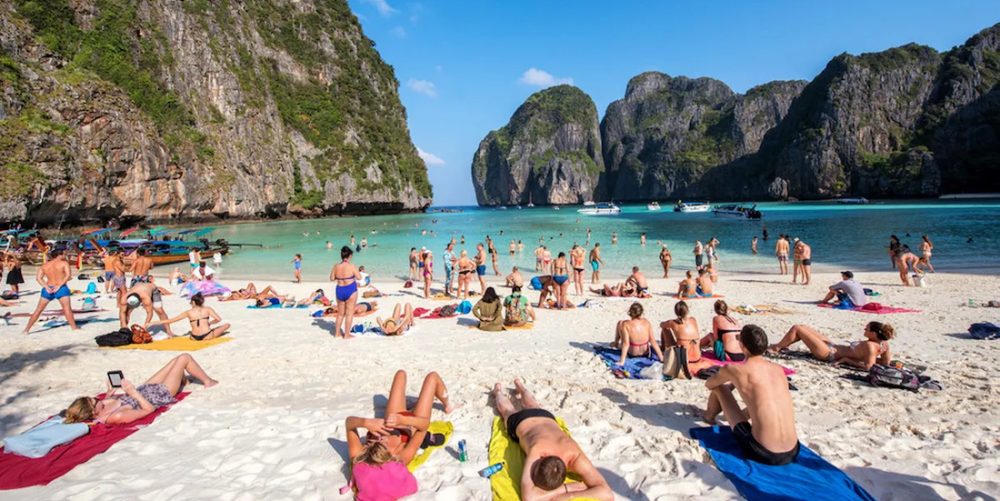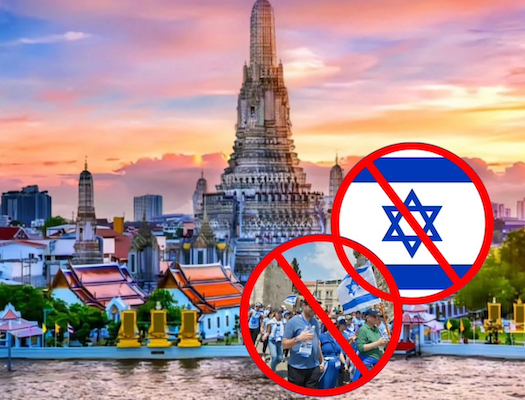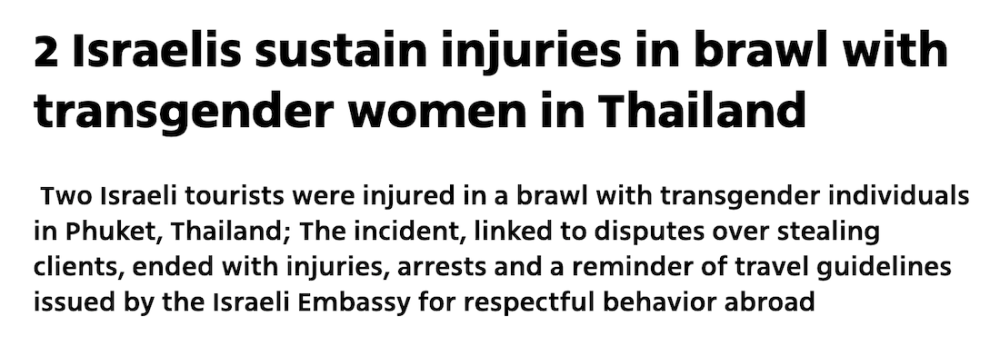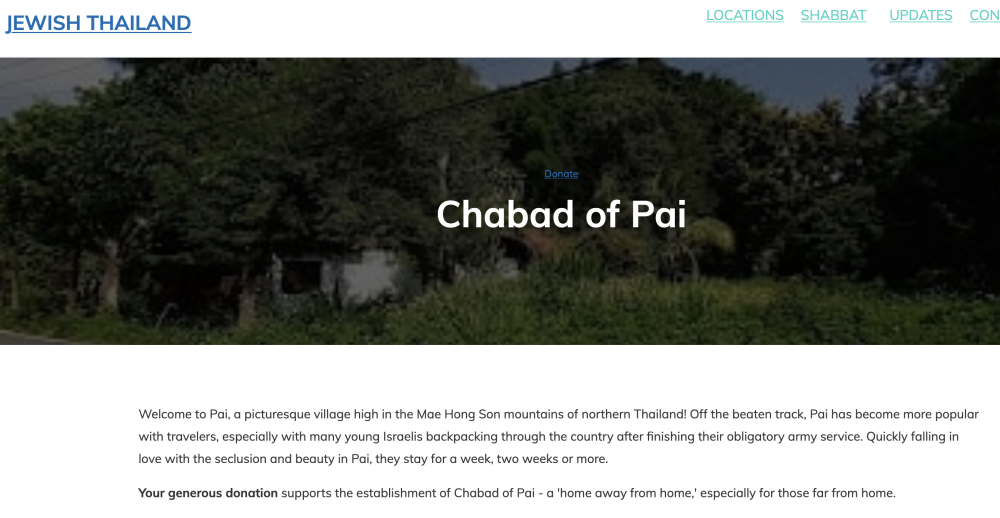
Thai Tourism Industry Pressures Government for Relief as Complaints Mount About Destructive and Disrespectful Visitor Conduct
New York, N.Y. — Thailand’s tourism authorities are grappling with mounting pressure from industry stakeholders to address escalating concerns about Israeli tourist behavior, as reports emerge of property damage, payment disputes, and cultural disrespect across popular destinations.

The Southeast Asian nation, which has long welcomed international visitors as a cornerstone of its economy, now finds itself at a crossroads between maintaining lucrative tourism revenue and protecting local communities from what industry professionals describe as increasingly problematic visitor conduct.
Rising Tensions in Tourist Hotspots
The northern town of Pai, situated near the Myanmar border, has become a particular flashpoint where Israeli visitors have established a dominant presence. Here Chabad of Pai, a Jewish community center in the northern tourist town, is raising funds and promoting the destination online (see screenshot below).

Local residents report a pattern of behavior that includes refusing to pay for services, aggressive bargaining tactics, and disregard for Thai cultural norms.
Recent incidents involving vandalism at Pai Hospital’s emergency room by Israeli tourists visiting an injured compatriot have intensified local frustrations.
The incident, which occurred when several individuals damaged hospital property, exemplifies the type of destructive behavior that has prompted calls for government intervention.
Tourism operators across Thailand report similar patterns in other destinations, with complaints ranging from property damage at accommodations to disputes over service charges at restaurants and tour operators.
The cumulative effect has created what industry insiders describe as a crisis of confidence in the sector.
Economic Pressures Mount

The Thai tourism industry, still recovering from pandemic-related losses, faces a complex economic dilemma.
Israeli visitors represent a significant revenue stream, particularly during peak seasons when European and North American tourist numbers traditionally decline.
However, the mounting costs of property repairs, mediation services, and reputation management have begun to outweigh the economic benefits for many operators.
Several guesthouse owners in popular backpacker areas report implementing unofficial policies to limit bookings from Israeli tourists, despite potential discrimination concerns.
The Israeli Embassy in Thailand has acknowledged the situation by issuing new behavioral guidelines for its nationals, including recommendations to observe local customs, minimize noise in public spaces, respect private property, and follow traffic regulations.
The embassy’s intervention signals recognition of the severity of the diplomatic and economic implications.
Cultural Disconnect Fuels Conflict
Tourism experts point to a fundamental cultural disconnect as a primary driver of the escalating tensions. Thai society’s emphasis on harmony, respect for authority, and indirect communication styles often clashes with more direct communication patterns common among some Israeli visitors.
The situation has been further complicated by the establishment of religious and cultural centers catering specifically to Israeli tourists. A newly established Chabad center in Pai has become a focal point for community concerns, serving as both a gathering place for approximately 200 to 300 Israeli nationals and a symbol of what some locals perceive as cultural displacement.
Local officials maintain that such establishments operate within legal boundaries, but acknowledge the need for greater cultural sensitivity training for both visitors and service providers.

Government Response Under Scrutiny
Thai immigration authorities report an increase in deportations of Israeli nationals for inappropriate behavior and legal violations, indicating official recognition of the problem’s scope. However, industry stakeholders argue that reactive measures are insufficient to address the underlying issues.
Tourism industry representatives have petitioned government officials for more proactive solutions, including enhanced screening procedures, mandatory cultural orientation programs, and strengthened enforcement of existing regulations. Some propose implementing deposit systems for certain tourist demographics to cover potential property damage costs.
The Thai government faces pressure to balance economic interests with community welfare, as tourism revenue remains crucial for national economic recovery. Officials have thus far avoided implementing blanket restrictions, instead focusing on diplomatic channels and enhanced enforcement of existing laws.

International Implications
The situation extends beyond bilateral tourism relations, potentially affecting broader diplomatic ties between Thailand and Israel. Cultural misunderstandings and behavioral conflicts could undermine decades of positive relations between the two nations.
The Israeli Embassy has emphasized that Thai people generally respect and welcome Israeli tourists, urging its citizens to preserve this relationship and prevent isolated incidents from tarnishing the broader tourist community’s reputation.
Tourism experts warn that failure to address these concerns could result in Thailand joining other destinations that have implemented informal or formal restrictions on certain tourist demographics, potentially setting precedents for similar actions elsewhere in the region.

Industry Seeks Sustainable Solutions
Rather than pursuing outright bans, many tourism professionals advocate for comprehensive cultural exchange programs designed to bridge understanding gaps between visitors and local communities. These initiatives would include pre-arrival orientation materials, cultural sensitivity training, and enhanced communication support services.
Some operators have begun implementing innovative approaches, such as partnering with cultural organizations to provide immersive experiences that promote mutual understanding and respect. These programs aim to transform potentially problematic tourist interactions into opportunities for meaningful cultural exchange.
The tourism industry’s preference for education over restriction reflects broader concerns about maintaining Thailand’s reputation as a welcoming destination while addressing legitimate community concerns about visitor behavior and cultural respect.

Thailand Mulls Tourist Restrictions Amid Israeli Behavioral Concerns (July 28, 2025)
Summary for Audio
Thailand’s tourism industry pressures government to address mounting complaints about Israeli tourist behavior, including property damage, payment disputes, and cultural disrespect. The northern town of Pai has become a flashpoint, with incidents including hospital vandalism prompting Israeli Embassy guidelines. While officials avoid blanket restrictions, deportations increase and industry seeks cultural exchange solutions over tourist bans to maintain Thailand’s welcoming reputation.